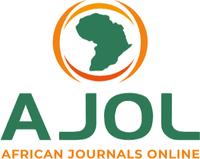Phytochemical Screening and Anti-Microbial Activity of Parkia biglobosa Seed’ Oil Extract
Keywords:
Parkia biglobosa, Seed’ oil, Phytochemical, Clinical IsolatesAbstract
Parkia biglobosa is a deciduous tree also known as African Locust Bean. It is a forestry types well known and exploited by Africans. The tree pods are refer to as the fruits of the plant and has colour ranges from pink brown to dark brown when fully matured. Phytochemicals screening and antimicrobial activity of the seed’ oil against some clinical isolates was carried out to ascertain suitability of the it as for the control of epidermal, urinary tract and other infectious diseases. Soxhlet extractor was used for the extraction of oil from the seeds, which later subjected to qualitative phytochemical analysis using standard methods. Antibacterial activity of the oil extract was perfomed using Agar Disc Diffusion Method. The clinical isolates used were Escherichia coli (E. coli), Pseudomonas aeurigonasa (P. aeurigonasa) and Staphylococcus aureus (S. aureus). The percentage yield of the oil is 30ml/120g x 100 % = 25%. The phytochemical analyses revealed the presence of saponins, flavonoids, steroids and glycosides. The oil possess significant antimicrobial activity against the isolates, particuarly at 100% and 50% concentration. Zone of inhibition increases as the concentration of the oil increases. Positive correlation was observed based on the oil concentration (increase). This study revealed the medicinal value of the seed’ oil, in addition to it’s the traditional uses.





